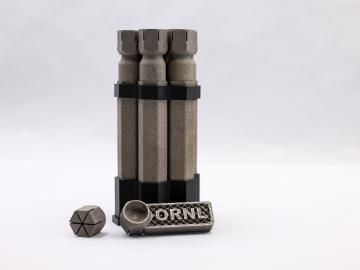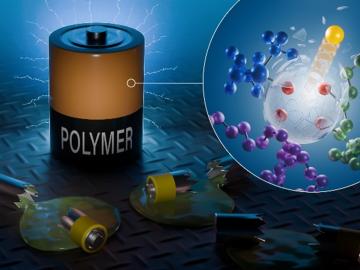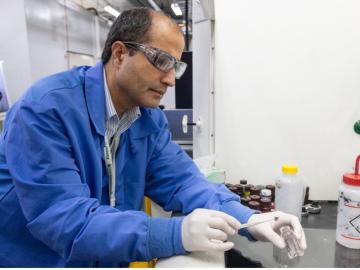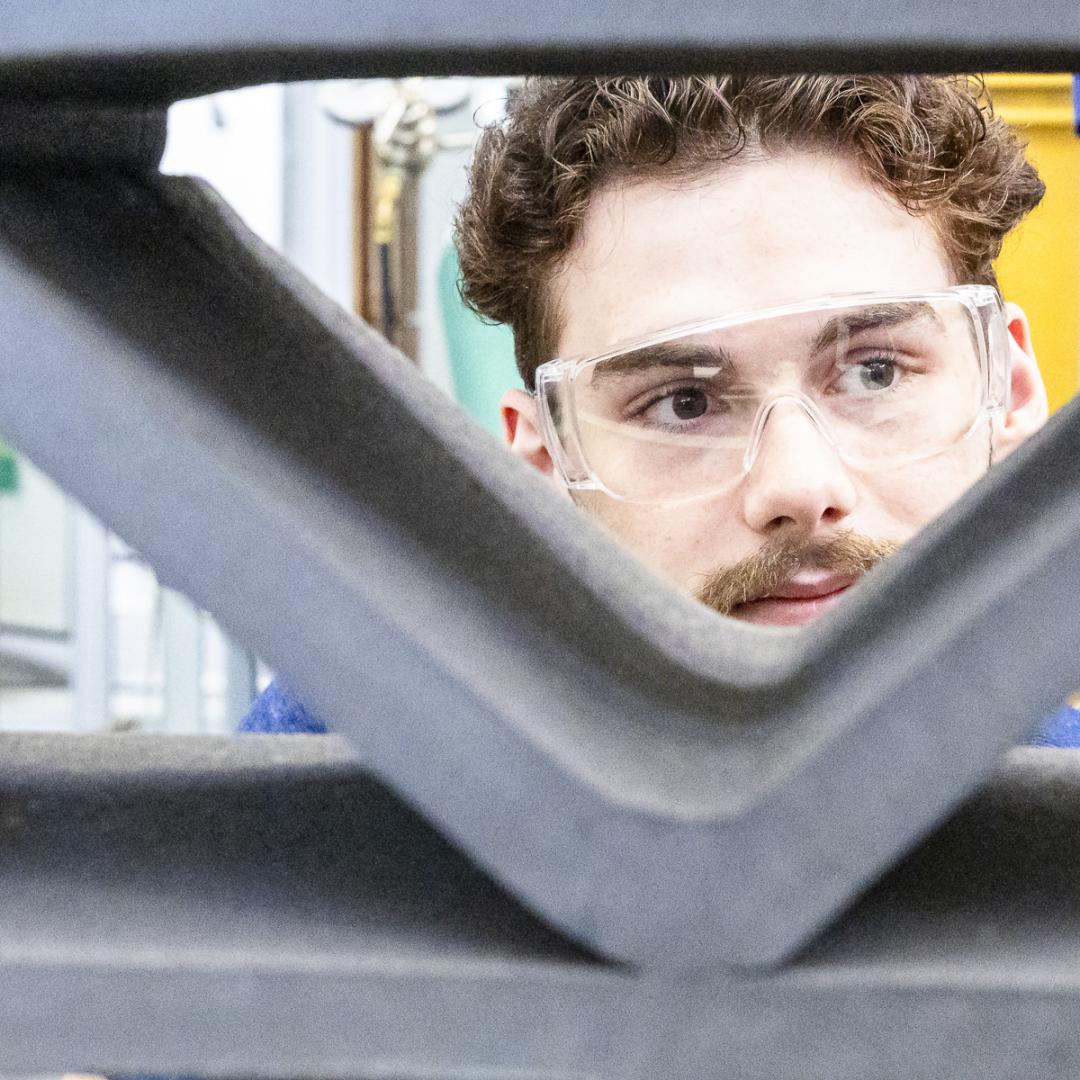Filter News
Area of Research
News Topics
- (-) Composites (1)
- (-) Materials (3)
- 3-D Printing/Advanced Manufacturing (2)
- Artificial Intelligence (4)
- Big Data (2)
- Bioenergy (1)
- Biomedical (1)
- Buildings (4)
- Chemical Sciences (2)
- Clean Water (2)
- Climate Change (6)
- Computer Science (4)
- Critical Materials (1)
- Decarbonization (4)
- Energy Storage (3)
- Environment (4)
- High-Performance Computing (4)
- Isotopes (2)
- ITER (1)
- Machine Learning (2)
- Materials Science (3)
- Nanotechnology (1)
- National Security (2)
- Net Zero (1)
- Neutron Science (3)
- Nuclear Energy (1)
- Partnerships (1)
- Polymers (2)
- Quantum Computing (1)
- Simulation (3)
- Sustainable Energy (3)
- Transportation (5)
Media Contacts

ORNL researchers used electron-beam additive manufacturing to 3D-print the first complex, defect-free tungsten parts with complex geometries.

An international team using neutrons set the first benchmark (one nanosecond) for a polymer-electrolyte and lithium-salt mixture. Findings could produce safer, more powerful lithium batteries.

Rigoberto “Gobet” Advincula, a scientist at the Department of Energy’s Oak Ridge National Laboratory, has been appointed a Fellow of the Institute of Materials, Minerals and Mining.

Electric vehicles can drive longer distances if their lithium-ion batteries deliver more energy in a lighter package. A prime weight-loss candidate is the current collector, a component that often adds 10% to the weight of a battery cell without contributing energy.




